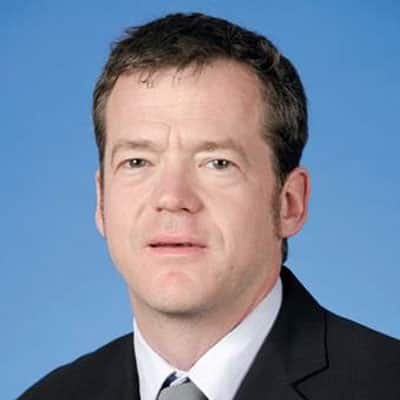Customer Logins
Obtain the data you need to make the most informed decisions by accessing our extensive portfolio of information, analytics, and expertise. Sign in to the product or service center of your choice.
Customer Logins
BLOG
Feb 24, 2021
Arrest of suspected Islamists in eastern Senegal
Senegalese newspaper Libération reported on 8 February that four suspected affiliates of the Mali-based Katiba Macina jihadist group were arrested in the border town of Kidira in the Tambacounda region between 20 and 23 January. Separately, a UN Security Council report published on 3 February asserted that elements of the al-Qaeda-affiliated Jama'at Nusrat al-Islam wal Muslimin (JNIM) umbrella group - to which Katiba Macina belongs - supported by "radical Islamist influencers" had encroached into several parts of north-eastern, eastern, and central Senegal.
The arrests, combined with the UN findings, indicate that Katiba Macina has infiltrated members into Senegal to support future operations. Although there has been no official confirmation of the Libération report, Senegal's vulnerability has increased significantly following the consolidation of Katiba Macina's presence in western Mali through local recruitment and preaching. The number of jihadist attacks has been increasing in the vicinity of the regional capital Kayes, which is less than 100 km from the Senegalese border, and France added Kayes to its "red zone" in August 2020, which advises against travel there.
The four suspects arrested in Kidira, two of whom are reportedly traders based in the town, have been transferred to Dakar and a judicial investigation has been opened into alleged acts of supporting terrorism and criminal association. Local media reported that phones had been seized containing contacts and a video footage suggestive of jihadist connections.
Dakar remains an aspirational target as JNIM adopts a more expansive operational outlook into coastal West African countries and consolidates its presence in border areas. The head of France's external intelligence agency issued a rare public statement on 1 February warning that JNIM is seeking to expand beyond its bases in Mali and Burkina Faso into coastal countries, and had a presence already in Côte d'Ivoire and Benin. Senegal has also been a long-standing al-Qaeda target, in part owing to its strong relationship with France and the widespread presence of foreign commercial interests, as well as its contribution to the United Nations Multidimensional Integrated Stabilization Mission in Mali (MINUSMA) peacekeeping mission in Mali.
In November 2018, JNIM released a video in which Katiba Macina leader Amadou Koufa called on members of the Peul ethnic group in countries across West Africa, including Senegal, to join the jihadist cause. The February UN report states that JNIM elements have established themselves along the road between Kayes and Kaffrine in central Senegal, as well as in Bakel, the Ferlo reserve, and the Saraya gold mining area. In December 2020, dozens of foreign nationals, mostly from Burkina Faso and Mali, were arrested for illegal mining activities in Saraya. As evidenced elsewhere in the Sahel, Katiba Macina is highly likely to infiltrate artisanal gold mining operations, eventually increasing the risk of kidnapping to Western nationals in the nearby tourist hub of Kédougou when travel resumes. Although a large-scale attack in Dakar is less likely in the immediate outlook, the already high risk of an improvised explosive device (IED) attack accompanied by gunmen targeting large hotels and government buildings is increasing.
A robust Senegalese military response, backed by France and the United States, decreases the likelihood of JNIM gaining traction in regions closer to Dakar. Senegal has responded to the increasing threat in the east of the country since mid-2020 by deploying additional troops to Ourossogui (Matam region) and Kedougou (Bassari). A new military camp is also under construction at Goudiry (Tambacounda region), while joint training exercises have been conducted by the army, police, and the paramilitary water and forest authority in the eastern Military Zone 4. New military camps have also been opened in Fatick and Louga. These reinforcements are likely to be further strengthened by support from France and the US, both of which have a military presence in the country. In May 2016, Senegal signed a defence co-operation agreement with the US, enabling the deployment of US troops in the event of an emergency. However, military reinforcements will do little to reduce the likelihood of Islamist recruitment of disenfranchised populations in poor eastern and southeastern regions in the absence of improved social services and infrastructure, including road rehabilitation and water provision.
{"items" : [
{"name":"share","enabled":true,"desc":"<strong>Share</strong>","mobdesc":"Share","options":[ {"name":"facebook","url":"https://www.facebook.com/sharer.php?u=http%3a%2f%2fssl.ihsmarkit.com%2fmarketintelligence%2fen%2fmi%2fresearch-analysis%2farrest-of-suspected-islamists-in-eastern-senegal.html","enabled":true},{"name":"twitter","url":"https://twitter.com/intent/tweet?url=http%3a%2f%2fssl.ihsmarkit.com%2fmarketintelligence%2fen%2fmi%2fresearch-analysis%2farrest-of-suspected-islamists-in-eastern-senegal.html&text=Arrest+of+suspected+Islamists+in+eastern+Senegal+%7c+S%26P+Global+","enabled":true},{"name":"linkedin","url":"https://www.linkedin.com/sharing/share-offsite/?url=http%3a%2f%2fssl.ihsmarkit.com%2fmarketintelligence%2fen%2fmi%2fresearch-analysis%2farrest-of-suspected-islamists-in-eastern-senegal.html","enabled":true},{"name":"email","url":"?subject=Arrest of suspected Islamists in eastern Senegal | S&P Global &body=http%3a%2f%2fssl.ihsmarkit.com%2fmarketintelligence%2fen%2fmi%2fresearch-analysis%2farrest-of-suspected-islamists-in-eastern-senegal.html","enabled":true},{"name":"whatsapp","url":"https://api.whatsapp.com/send?text=Arrest+of+suspected+Islamists+in+eastern+Senegal+%7c+S%26P+Global+ http%3a%2f%2fssl.ihsmarkit.com%2fmarketintelligence%2fen%2fmi%2fresearch-analysis%2farrest-of-suspected-islamists-in-eastern-senegal.html","enabled":true}]}, {"name":"rtt","enabled":true,"mobdesc":"Top"}
]}




